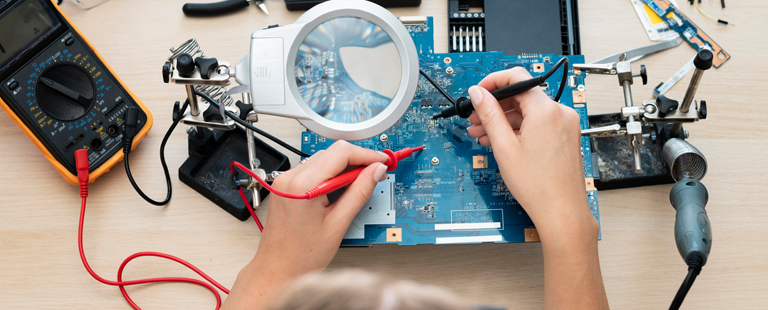Negotiation Techniques for Being a Better Entrepreneur

One should always be prepared before negotiating a deal. Before entering into an agreement, being prepared will give you a head start. It is crucial for entrepreneurs as it can help them secure better deals, partnerships, and collaborations. Here are some negotiation techniques that entrepreneurs can use to achieve their goals:
- Be prepared: Before going into any negotiation, it is essential to do your homework. First, research the other party, their needs, and their priorities. Then, be clear about your objectives and the outcomes you want to achieve.
- Listen actively: Active listening is critical in any negotiation. Pay attention to what the other party is saying, and ask clarifying questions to ensure you understand their perspective. This understanding can help you find common ground and identify areas of agreement.
- Use anchoring: Anchoring is a technique where you start the negotiation with a high anchor point or a higher price point than what you expect. This higher price point can set the tone for the negotiation and make the other party more receptive to your counteroffers.
- Identify your BATNA: BATNA stands for Best Alternative to a Negotiated Agreement. It is the best outcome you can achieve if the negotiation fails. Identifying your BATNA can give you leverage in the negotiation and help you avoid settling for a bad deal.
- Build rapport: Building rapport with the other party can make them more likely to agree to your proposals. Find common interests or topics to bond over and create a positive relationship with the other party.
- Use mirroring: Mirroring is a technique where you repeat the other party’s words or phrases to showcase your listening skills and build rapport. This technique can help you connect with the other party and build trust.
- Be flexible: Negotiation is about finding a mutually beneficial solution. Be willing to compromise and consider alternative proposals. This can help you find a solution that works for both parties.
- Know when to walk away: Sometimes, the best option is to leave a negotiation if the other party is unwilling to meet your minimum requirements. This can help you avoid making bad decisions and focus on finding better opportunities elsewhere. In addition, by using these negotiation techniques, entrepreneurs can improve their chances of achieving their objectives and securing better business deals.
Conclusion
In conclusion, negotiating is an essential skill for entrepreneurs, and with the proper techniques, it can become a powerful tool for achieving success. As an entrepreneur, it is essential to prepare thoroughly before entering into negotiations, understand your goals, and be willing to compromise when necessary. Active listening, strategic questioning, and the ability to read body language are also critical components of effective negotiating.
Remember, negotiating is not about getting everything you want but finding a solution that works for both parties involved. By mastering these negotiating techniques and applying them to your business dealings, you can create more successful partnerships, close more deals, and ultimately take your business to the next level. So, start honing your negotiating skills today and watch your business thrive.
Read Your Next Blog

How Artificial Intelligence is Shaping the Next Generation of Engineers for Industry 4.0

How BBA LL.B. Degree can Help You Shape Law, Understand Business and Lead the Future

Shape Narratives, Build Brands & Lead Media with a BA in Journalism and Mass Communication

B.A. LL.B. Course Details: Duration, Fees, Subjects, Syllabus, and Admission 2025

Unveiling the World of Hospitality Management: Crafting Memorable Experiences

What is Journalism and Mass Communication: Crafting Stories That Shape the World

How to Become a Lawyer: A Step-by-Step Guide to a Rewarding Legal Career

Be a Master of the Smallest Particle Alive and Know What is Nanotechnology

Engineering Aspirations: Your Guide to B.Tech Courses and Admissions 2025

Mastering the Law: Your Ultimate Guide to the 3-Year LLB Course Syllabus

Take a Flight to Success by Knowing the Answer of What is Aerospace Engineering

LL.B. Course Details: Everything You Need to Know to Kickstart Your Legal Career

From Classrooms to Coding: Courses After 12th Computer Science for Aspiring Tech Wizard

What is Mechanical Engineering: The Science Behind Machines and Mechanics

From Courtrooms to Corporate Offices: Government Jobs You Can Land with a BBA LL.B.

Essential BBA Course Details: All You Need to Know About Business Studies

Design the Future with a B.Des – Where Creativity and Strategy Collide

Explore the Future: Top B.Tech. Courses to Kickstart Your Engineering Career

From Guest Services to Executive Suites: Navigating Your Journey with B.Sc. in Hospitality Management Course

From Resorts to Restaurants: Exploring Jobs After Hospitality Management

From Data to Discovery: How Biomedical Data Science is Accelerating Breakthroughs in Medicine

Step into the World of Finance: Your Guide to BBA Finance Admissions and Opportunities

Climbing the Academic Ladder: Your Ultimate Guide to Doing a Ph.D. in India

Power Up Your Potential: Best Engineering Courses After 12th For Tech Enthusiasts

System Engineering: Building a Resilient Career in a Rapidly Changing World

Making the Right Choice: Exploring the Best Career Options After 12th Grade

More Than Just Litigator: 10 Rewarding Career Options After B.A LL.B. (Hons.)

Develop Media Literacy and Form a Career in Journalism and Mass Communication

Is Mechanical Engineering a Good Career? Exploring Career Paths & Benefits

Innovate Infrastructure Development – Different Types of Civil Engineering

Give a Boost to Your Technologically-advanced Career with M.Tech. Courses

Different Types of MBA Courses – Gain Valuable Skills for the Business World

Elevate Your Leadership Expertise with a Doctorate in Business Administration

Lay a Solid Foundation for Your Career with the Exploration of Types of Mechanical Engineering

Embrace the Science of Healing and Innovation with Biotechnology Engineering Scope

Discern Your Dream Career in Media with the Scope of Journalism and Mass Communication

Exploring Law Courses After 12th: Your Gateway to a Diverse Legal Landscape

The Power of Connectivity: Unveiling the Scope of Electronics and Communication Engineering

Exploring the Expansive Horizons: The Scope of Journalism and Mass Communication

Achieving Educational Excellence: A Deep Dive into Master’s Degree in Education

Beyond the Degree: Unveiling the Multifaceted Benefits of Doing an MBA

Bridging Gaps, Building Futures: Exploring the Endless Scopes of Civil Engineering

Choosing Your Legal Path: BA LLB vs BBA LLB – Which Course is Better?

Kickstart Your Journey With Mass Communication Courses After 12th Grade

Decoding the Difference Between Electrical and Electronics Engineering

Next Steps: Exploring Top Computer Science Engineering Courses After 12th

Journalism Courses After 12th – Understanding the Significance of a BA in Journalism and Mass Communication

Forge Your Path to Excellence with Ph.D. Admission – Dive Into Details

Why MBA After Engineering: Transcending from Technical Wizardry to Leadership Mastery

Know the Scope of PhD in Economics and uncover hidden patterns of economic brilliance.

A Closer Look Into the BBA Computational Business Analytics Admission Process

From Circuits to Codes – Discover a Wide Range of Career Options After B.Tech. ECE

The Nanotech Revolution: The Astonishing Future Impact of B.Tech. Nanotechnology

From Roads to Skies: The Limitless Horizon of the Scope of M.Tech. in Transportation Engineering

Discover a New Era of Business Education with the Immense Scope of BBA in Computational Business Analytics

From Application to Acceptance – Navigate the Ph.D. Information Science and Technology Admission Process

Pave Your Path to Financial Brilliance with an Enormous Scope of BA Economics and Finance

Join the Digital Revolution with Diverse Career Options After B.Tech. ECE

Discover Your Eligibility for B.Tech. Biotechnology and Kickstart Your Career

Transform Your Career Trajectory with the Lucrative Scope of an Executive MBA

M.Tech. in Power Electronics and Renewable Energy Systems – Pursue New-age Careers

Ph.D. in Economics – Discover Innovative Solutions to Economic Challenges

M. Tech. in Autonomous Electric Vehicles – Dive Into the Future of Autonomous Vehicles (AV)

Construct a Better World with B.Tech. in Civil Engineering from Mahindra University

Acquire the Futuristic Mathematical & Computing Technologies with a Computational Mathematics Course

PhD in Business Administration – Dig Deeper into the Science of Management

B.Tech in Mechanical Engineering – Become a Master of Mechanics at Mahindra University

Shape Your Engineering Career with Mahindra University – One of the Best Engineering Colleges in Hyderabad

Transform Lives & Shape the World with Mahindra University – One of the Top Civil Engineering Colleges in Hyderabad

B Tech in Artificial Intelligence – The Next Big Thing in Technological Revolution

Lead the Tech Revolution with BTech CSE at Mahindra University – One of the Best Computer Science Engineering Colleges in Hyderabad

Kickstart Your Legal Career with Mahindra University – One of the Best Colleges for BBA LLB

Top BA LLB Colleges in Hyderabad – Training Exceptional Lawyers and Leaders

BTech Electronics and Computer Engineering Course – Engage in Independent and Life-long Learning

Best Colleges for Humanities and Social Sciences – Get World-class Training and Hands-on Learning Experience
![Arm_Yourself_with_Deep_Business_Knowledge_&_Insights_with_PhD_Program_in_Business_Administration_at_Mahindra_University[1] Arm_Yourself_with_Deep_Business_Knowledge_&_Insights_with_PhD_Program_in_Business_Administration_at_Mahindra_University[1]](https://www.mahindrauniversity.edu.in/wp-content/uploads/2023/04/Arm_Yourself_with_Deep_Business_Knowledge__Insights_with_PhD_Program_in_Business_Administration_at_Mahindra_University1.jpg)
Arm Yourself with Deep Business Knowledge & Insights with PhD Program in Business Administration at Mahindra University
![Emerge_as_a_Forward_thinking_Mechanical_Engineer_with_B_1140x460[1] Emerge_as_a_Forward_thinking_Mechanical_Engineer_with_B_1140x460[1]](https://www.mahindrauniversity.edu.in/wp-content/uploads/2023/04/Emerge_as_a_Forward_thinking_Mechanical_Engineer_with_B_1140x4601.jpg)
Emerge as a Forward-thinking Mechanical Engineer with B.Tech in Mechanical Engineering at Mahindra University
![B.Tech_in_Computer_Science_Engineering_(BTech_CSE)_Your_Gateway_to_Become_a_Computer_Genius_1140x460[1] B.Tech_in_Computer_Science_Engineering_(BTech_CSE)_Your_Gateway_to_Become_a_Computer_Genius_1140x460[1]](https://www.mahindrauniversity.edu.in/wp-content/uploads/2023/04/B.Tech_in_Computer_Science_Engineering_BTech_CSE_Your_Gateway_to_Become_a_Computer_Genius_1140x4601.jpg)
B.Tech in Computer Science Engineering (BTech CSE) – Your Gateway to Become a Computer Genius
![Digital_Marketing_is_Booming_Globally_1140x460[1] Digital_Marketing_is_Booming_Globally_1140x460[1]](https://www.mahindrauniversity.edu.in/wp-content/uploads/2023/04/Digital_Marketing_is_Booming_Globally_1140x4601.jpg)
The Scope of Digital Marketing is Booming Globally. Transform the Business Landscape with a BBA in Digital Marketing
![MU_Electrical20Computer20Engineering_1140x460[1] MU_Electrical20Computer20Engineering_1140x460[1]](https://www.mahindrauniversity.edu.in/wp-content/uploads/2023/04/MU_Electrical20Computer20Engineering_1140x4601.jpg)
India Calls for Multitalented Engineers. Be the One with the Electrical and Computer Science Engineering Course
![BA_LLB_Hons_Course_at_Mahindra_University[1] BA_LLB_Hons_Course_at_Mahindra_University[1]](https://www.mahindrauniversity.edu.in/wp-content/uploads/2023/04/BA_LLB_Hons_Course_at_Mahindra_University1.webp)
Do You Want to Pursue Law as a Career? Take BA LLB Hons Course at Mahindra University
![Management_&_Business_Administration_is_Tremendously_High[1] Management_&_Business_Administration_is_Tremendously_High[1]](https://www.mahindrauniversity.edu.in/wp-content/uploads/2023/04/Management__Business_Administration_is_Tremendously_High1.jpg)
The Scope of PhD in Management & Business Administration is Tremendously High. Understanding the Significance.

Civil Engineers Are New-age Superheroes. How is Mahindra University Moulding Futuristic Civil Engineers?

Be Legally Empowered by Pursuing Law | Top BA LLB (Hons) Colleges in Hyderabad

Pursue BA in Economics & Finance and contribute to India’s economic development

A Comprehensive Outlook On One Of The Highly Sought After Courses In Law: BBA LLB (Hons)

Why Revolutionary B.Tech Computer Science and Engineering Course Is The Choice Of Every Aspiring Student?

B.Tech in Computer Science & Engineering: A course for those who want to learn to lead forward

Manifesting excellent managerial skills and a fatter salary tag? It’s just a degree away.

Why BBA LLB is the right course for Law and Business enthusiasts in 2022

Here’s why B.Tech in Mechanical Engineering is one of the emerging courses for today’s talented youngsters

How Has Digital Marketing Turned Out To Be A Boon For Creative Individuals ?

Reasons Why You Should be active in Sports, Extracurriculars at The University

Skillsets That Give You an Edge Over Others in Securing Your Dream Job

Getting Back to Campus in The Post-COVID 19 World, 5 Hacks You Should Remember

How has Computer Science Engineering (CSE) evolved to create a demand among engineering aspirants

How B.Tech In Mechatronics Engineering Contributes In Making Human Life Easier?

Most Promising Engineering Disciplines with the Best Opportunities in 2025


















































































































![whyistraining&placementcellimportant[1] whyistraining&placementcellimportant[1]](https://www.mahindrauniversity.edu.in/wp-content/uploads/2023/04/why20is20training2020placement20cell20important1.png)
![TheDifferencesbetweenRights&Duties[1] TheDifferencesbetweenRights&Duties[1]](https://www.mahindrauniversity.edu.in/wp-content/uploads/2023/04/The20Differences20between20Rights2020Duties1.png)
![sleep_deprivation[1] sleep_deprivation[1]](https://www.mahindrauniversity.edu.in/wp-content/uploads/2023/04/sleep_deprivation1.jpg)
![SelfLoveBlogImage2[1] SelfLoveBlogImage2[1]](https://www.mahindrauniversity.edu.in/wp-content/uploads/2023/04/Self20Love20Blog20Image2021.png)







































































































